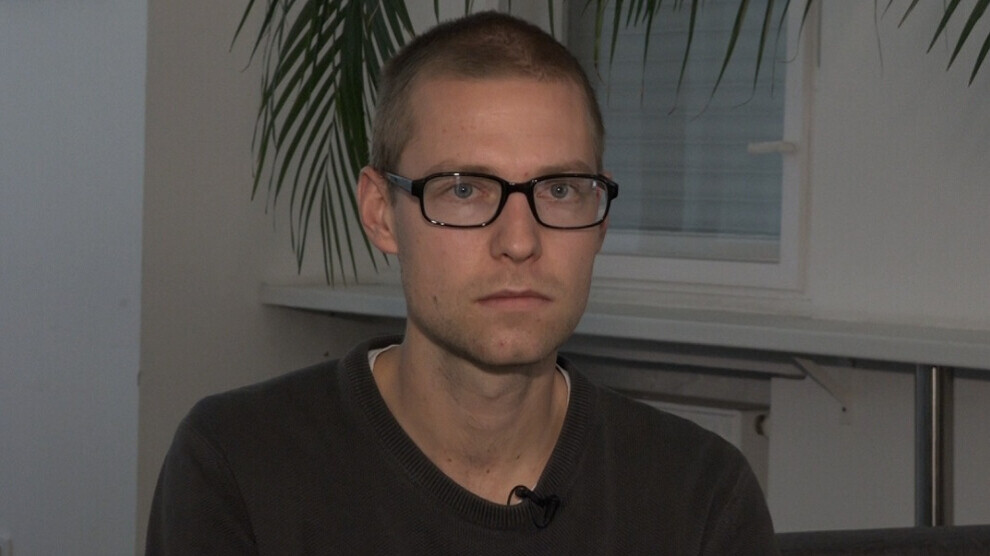Lawyer Theune: German government must stop criminalizing Kurds
Lawyer Lukas Theune called on Germany to lift the ban on the PKK and end the repression of Kurds.
Lawyer Lukas Theune called on Germany to lift the ban on the PKK and end the repression of Kurds.

The Kurdistan Workers’ Party (PKK) held its 12th Congress between 5 and 7 May. Following the congress, the organization announced that “all activities carried out in the name of the PKK have been terminated.”
The decisions taken at the congress received positive responses both domestically and internationally. The United Nations Secretariat, as well as the foreign ministries of the United States, the United Kingdom, and Germany, issued statements welcoming the PKK’s decision to dissolve.
However, a legal petition submitted by lawyers in Germany to lift the ban on the PKK, enforced since 1993, was rejected by the German Ministry of the Interior. In response, the lawyers filed a lawsuit with the Berlin Administrative Court and announced that they would pursue the legal process.
One of the lawyers involved in the case, Lukas Theune, spoke to ANF about both the decisions made at the PKK’s congress and the stance he believes the German government should take in light of the ban.
You filed a lawsuit with the Berlin Administrative Court after receiving a negative response from the Ministry of the Interior regarding your request to lift the ban on PKK activities in Germany. Meanwhile, the PKK announced during its 12th Congress held on 5–7 May that it had decided to end all activities carried out in its name. How do you interpret this development?
We filed a case against the activity ban imposed on the PKK in 1993. In response, the federal government stated that it remained unclear whether the PKK would accept Abdullah Öcalan’s call to dissolve and lay down arms.
However, during its congress held from 5 to 7 May, the PKK officially announced that it had accepted Abdullah Öcalan’s call and decided to lay down arms. In this context, we can assume that the German government, by translating its previous statements into action, will lift the ban on the PKK and thus allow the Kurdish movement to take part in the peace process within Germany.
The Ministry of Foreign Affairs responded positively to Kurdish People’s Leader Abdullah Öcalan’s statement and the PKK congress decisions. However, police under the Ministry of the Interior detained Yüksel Koç, the former co-chair of the European Kurdish Democratic Societies Congress (KCDK-E). Does this suggest a difference in approach between the foreign and interior ministries in Germany regarding the Kurdish question?
The statement from the Ministry of Foreign Affairs was made by Annalena Baerbock while the ministry was still led by the Green Party. The new Foreign Minister, Mr. Wadephul, has not yet taken a clear position on this process. Nevertheless, we believe that the German government as a whole will support this peace process.
However, the congress took place under the new leadership of the Ministry of Foreign Affairs, and the ministry issued a statement of approval.
Yes, words alone are not enough.
So, what position should the German government take domestically in response to this new situation?
The German government must also act. It should lift the ban on the PKK and, above all, stop criminalizing and imprisoning people of Kurdish origin. We understand that this is a newly formed government, and a unified position is still in the process of being developed.
Nevertheless, what the Ministry of Foreign Affairs stated is absolutely correct. This peace process must be supported and that includes recognizing the Kurdish minority in Germany and refraining from criminalizing or punishing them.